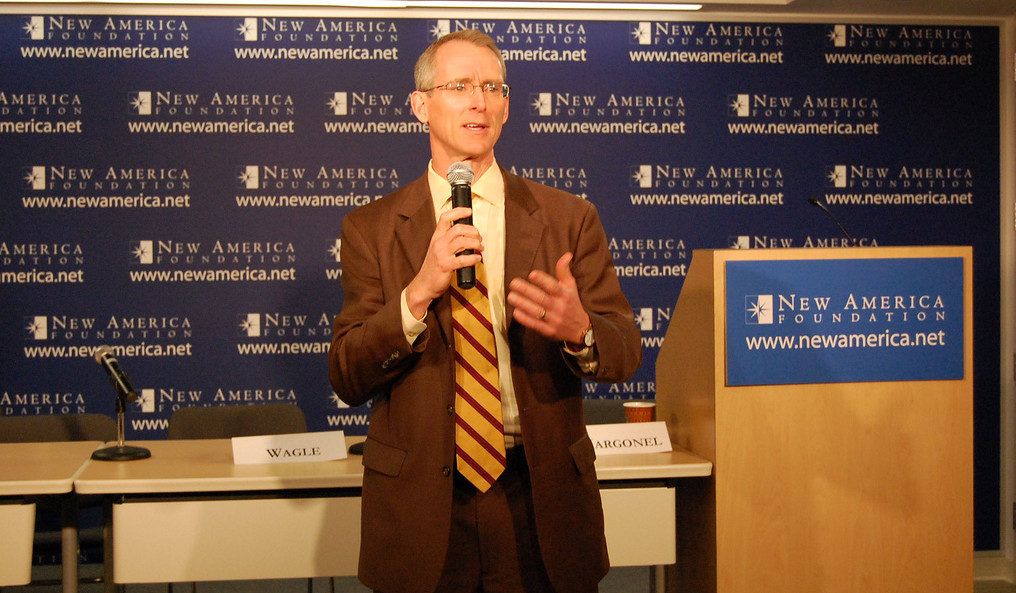Bob Inglis, a former Republican congressman from South Carolina, spoke to members of the Brown community Tuesday about climate change. Inglis, while in Congress, voted against a cap and trade system to reduce carbon emissions. But he’s come to realize that the costs imposed by fossil fuels, both long-term and short-term, represent a failure of the free market and a real threat to the environment.
Inglis advocates “attaching all costs to all fuels.” This means removing subsidies for all energy companies, including those propping up the wind industry. His plan includes a carbon tax on fossil fuels. This tax would be revenue neutral: either another tax rate would be cut, or citizens would receive a dividend, to ensure the federal government does not receive any additional revenue. Finally, a tax on some imports would make sure that American manufacturing is not priced out of global trade because of the carbon tax.
Inglis argued that conservatives have an “inferiority complex” about climate change: they don’t think their party has any answers. I think this is accurate. If your political philosophy shuns taxes and government action, and a problem comes along that demands both of these things as the only solution, it’s easier to discredit the problem than deal with it.
Inglis also mentioned that liberals like to frame climate change in apocalyptic terms, which turns off conservatives. I am also sympathetic to this argument. I consider myself pro-environment, but find it easy to tune out the environmental movement. I think that advocates, especially when they are fighting for the voiceless, have a right to be uncompromising. And maybe nature is voiceless. But framing the climate change debate as one of “saving the planet,” in opposition to greedy corporations and destructive human beings, is not helpful. This frame creates a demarcation between humanity and nature that’s not accurate, and leaves little room for legitimate human needs.
The language of sustainability, which is becoming more popular, is a better way to think about the environment. Sustainability appeals to our self-interest by trying to find ways that “humans and nature can exist in productive harmony,” with an eye toward the future. Inglis’ free market rhetoric may be more stark, and it’s really not far removed from the idea of sustainability.
To facilitate agreement, Inglis argued that liberals should let conservatives decide what to do with the carbon tax revenue. He noted that some liberals are dismayed that conservatives would prefer to cut the corporate tax rate to create a revenue-neutral climate change plan. His counterargument is that if liberals believe climate change is a real threat, and there is a bill in place that would mitigate that threat, then liberals shouldn’t get caught up in the politics of the proposed solution. The knee-jerk liberal in me winces as cutting corporations a break in an era of skyrocketing corporate profits and increasing inequality. But the more I think about it, the more I think Congressmen Inglis may be right.

RT @BrownBPR: Solving Climate Change, Conservatively: Ex-GOP Rep. Bob Inglis proposes carbon tax. http://t.co/tP5UuvTPia